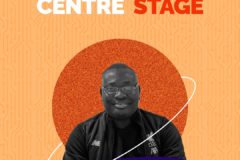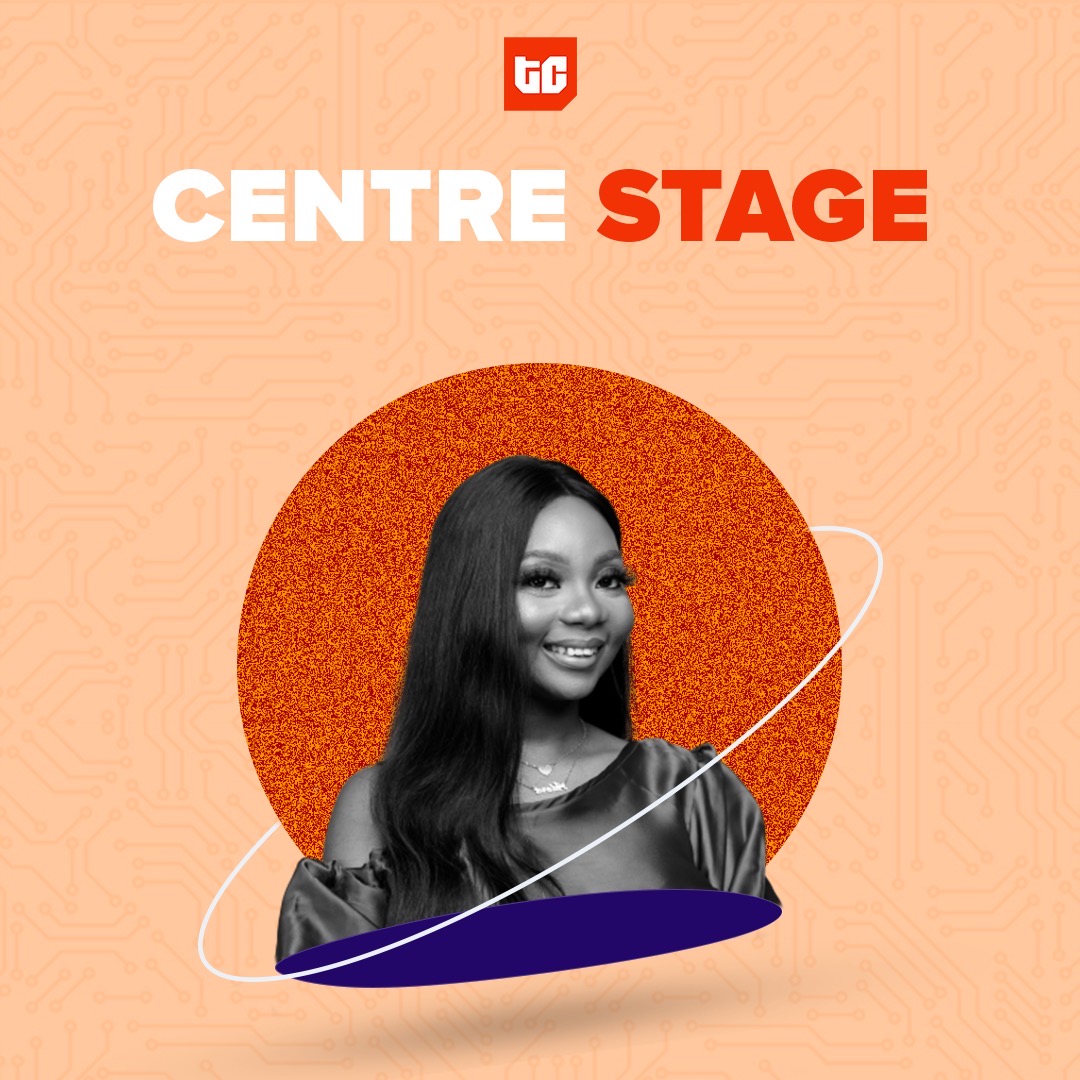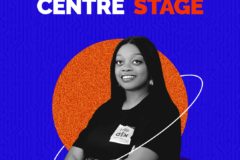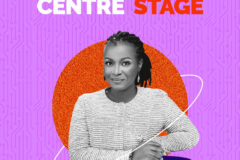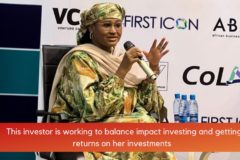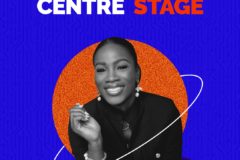It takes a great team to build an equally great product. Centre Stage exists to tell the behind-the-scenes stories of how products and companies are built in Africa. A new Centre Stage story drops every Monday at 3 PM.
I’m bringing Blessing Abeng to centre stage because I am inspired by her dedication to supporting Africa’s rising tech talent through her role as Director of Communications at Ingressive For Good. Blessing is a go-getter who is eager to learn and isn’t afraid to ask questions or have difficult conversations. I admire Blessing’s courage and commitment to keep going despite the occasional obstacles life has thrown at her.
Busy schedules, French verbs, and healthy work habits
You seem like a busy woman. What does a typical day look like for you?
I think that’s one of the hardest questions to answer. You know how lots of successful people recommend having and sticking to a routine because it helps you plan your life and whatnot? Yeah, that has never really worked for me.
Haha! Really?
Yup! When you work in communication, no two days are the same. Some days I don’t sleep. Some days I sleep and wake up at 6 am. And some days I sleep in [laughs]. So the way I plan my day is dependent on my goals and objectives. There’s also the fact that I am taking French classes at the moment.
Pause. Tell me why you are learning French?
Please don’t laugh. I want to be able to dream and think in another language that isn’t English. Learning a different language opens your mind up to a myriad of possibilities and expands the way you think. Learning French has shown me that people think differently based on their first or second language.
Very interesting. Where are you taking classes and how does learning French affect your day-to-day work?
I’m taking a 360 approach to learning French. I’m taking some lessons at Alliance Francaise de Lagos – which means I’m up early at 5:30 AM to plan and kick off my day before classes start at 8 AM. I also use Duolingo and practice my speaking with online videos and courses.
Wow. And you do this every day?
Every single day. Sometimes during class, I am on my laptop responding to emails and doing some work. As you can imagine, my French teacher teases me a lot about overworking myself. I know the way I work, for the most part, isn’t healthy, and I’m learning that I cannot work like this and survive.
Communication skills, learning on the job and killing myths:
Speaking of jobs, what existing skillsets did you have before you joined Ingressive?
I’ve always had great leadership and digital marketing skills. I know my way around offline and online marketing tactics. I’m great at storytelling and one of my strengths is creating and executing strategic plans.
What did you learn on the job?
I learned how to communicate with donors. Ingressive for Good is a non-profit company, so managing donors is a different ball game. I had to learn how to speak to donors and effectively communicate what we are doing at Ingressive. I also learned how to better manage my time and allocate my minutes and hours to my job, team members, and family members. The higher you go, the more work you have to do. I had to learn how to prioritize my time effectively.
What are some myths you think it’s important to kill?
Don’t just do the work – show the work. What does that mean? Well, I’ve met people who believe that all they need to do is build a product and their customers will find it. That’s not how things work. If you only do the work, and it doesn’t get in front of the people who need it, you might not grow as fast as you want to. I recommend that founders prioritize showing the work as much as doing the work. If you aren’t capable of doing it yourself, hire a comms person to do it.
What skills should aspiring communications professionals be learning?
Presentation skills. Presentation is important because as you grow you’re going to have to start presenting to boards, senior leaders and executives. You need to be able to capture what’s important without boring them.
I also recommend that they should dedicate themselves to learning and assimilating ideas and best practices that are relevant to the industry. And don’t just learn; go out and put into practice what you’ve been taught online or in-person.
How do you define and navigate professional failures?
Firstly, I remind myself that failing at a project does not mean I am a failure. I have only failed when I stop trying or I think, “I have failed so let me give up.” Yes, there’s a place to exit projects that aren’t working the way you want them to; but I don’t allow failure to kick me down or make me lose my confidence or hope in life.
Secondly, failing at a project does not mean you are not excellent. Failure gives you an opportunity to take stock and figure out what went wrong and what could have been done differently.
Thirdly, take your time to process the failure but don’t dwell on it. I also recommend keeping track of your wins and successes. I have a “win journal” and it helps me remember my accomplishments.
The intersection of family and work:
My dad wanted me to be a doctor. Obviously, that didn’t happen. Back in the day, my mother used to get teased about having two daughters. Her co-workers would tell her, “you don’t have a child yet because you don’t have a son.”
What?
Yes! She used to cry about it and quite frankly, I stand by the fact that she was bullied at work. She didn’t let it affect the way she raised us though. She simply encouraged us to work harder and prove to naysayers that gender isn’t the ultimate marker for success in our society.
So you didn’t go down the medicine path. How did you find your way to branding?
A friend of mine recommended that I go to branding school and turn my creativity into a professional career path. I told my dad I was leaving Abuja and moving to Lagos to learn brand management and work in an agency. Even though he wasn’t fully comfortable with it, he still supported me. We signed an agreement: if my chosen path didn’t work out after two years, I had to come back home.
Trends, insights, and the future of business and tech in Africa:
When you think about the tech and business ecosystem in Africa, what excites you? What do you think is possible?
Disclaimer: I don’t know the future and I cannot predict that any of my thoughts will be fulfilled at some point in this life.
Dr Ola Brown once explained that small businesses are the lifeblood of a country. SMEs help with employability and boosting the economy – which means that we need to see more support for SMEs so they can hire our growing youth population. I believe that there is hope for our employment issues to be solved in the future because of the amount of funding coming into the country. I also see that an increasing number of small businesses are going out of their way to solve problems that our leaders have ignored for too long.
I’m also excited about the startups that are making bold moves. I applaud businesses like Flutterwave, Bankly and Paystack for going over and beyond to change the narrative about innovation and entrepreneurship in Nigeria.












